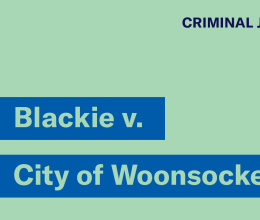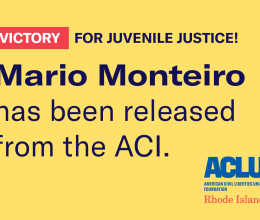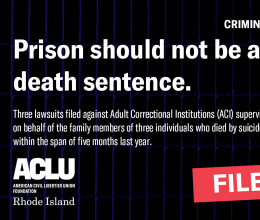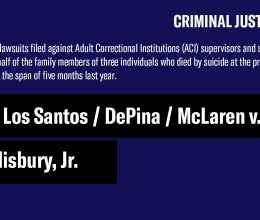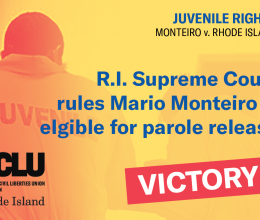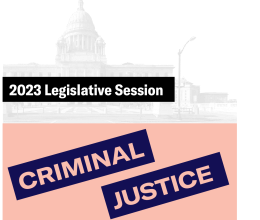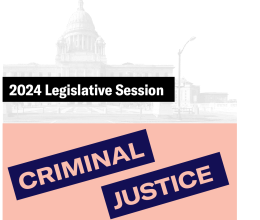With the support of more than two dozen community and civil rights organizations, three teenage victims of racial profiling spoke today at a news conference to stress the urgent need to pass legislation designed to strengthen state laws against racial profiling. The victims described how this practice erodes trust between police and the minority community.
The legislation (H 5263/S 0219), sponsored by Rep. Grace Diaz and Sen. Rhoda Perry, seeks to reduce police practices that lead to profiling by standardizing requirements for traffic stops. Among other things, the bill requires police to document in writing their “probable cause” and “reasonable suspicion” grounds for conducting a search; bans “pretext” traffic stops, when police use a traffic violation as an excuse for pulling over a driver for a different reason; and limits questioning of passengers when there are no grounds to suspect illegal activity. The bill also resumes statewide data collection on traffic stops. A separate provision is specifically aimed at protecting young people from profiling practices on the streets, by barring so-called “consent searches” of juveniles by police.
At the news conference today, backers of the legislation emphasized that many policies in this bill are already used by some departments in the state and around the country and that statewide regulation will simplify practices and reduce confusion in police departments.
Speaking at the news conference to describe their experiences were Channy Neou, a 20 year old Cambodian man from Providence who has had many experiences being racially profiled; Johanna German, a 17 year old Latina and Classical High school student; and Brian Capcap, a 17 year old Filipino student at Adelaide High School. They are involved in the youth community groups PrYSM and Youth4Change. Also speaking was longtime civil rights activist Onna Moniz-John, an East Providence resident who, along with her family, has been the victim of many incidents of racial profiling.
Representative Diaz emphasized that “the elimination of racial profiling would greatly benefit police relations with minority communities. Improving police/minority relations would have a positive impact on the willingness of many minority victims and witnesses to help police with investigations.”
She further noted: “It has been over a decade since the first data collection law was passed in Rhode Island. The issue in our community is no longer about counting numbers – it’s about reducing racial profiling. We know for a fact that racial profiling is occurring – the question for us all is whether we are prepared to continue to do something about it.”
Among the many groups supporting the legislation are the Rhode Island ACLU, the Univocal Legislative Minority Advisory Coalition, Providence Youth Student Movement, Ocean State Action, the International Institute of RI and the National Association of Black Law Enforcement Officers.


